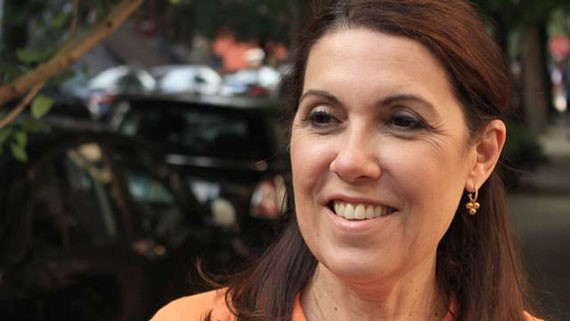Dietitian, nutritionist and health educator Laura Lagano gave a lecture titled, “Medical Cannabis: Are You Ready for the New Frontier of Healthcare?” in the 30th annual Virginia A. Beal Lecture at the University of Massachusetts.
The Virginia Beal Lecture set focuses on “cutting edge” and “controversial” subjects, according to associate professor and head of the department of nutrition Richard J. Wood.
“I think that there is probably nothing more controversial at the moment than what the impact of cannabis is going to be within the medical community as well as the general population,” Wood said.
Lagano discussed the integration of cannabis into medical healthcare and emphasized the importance of educating the public about medical marijuana, as well as changing certain terminologies of marijuana going forward. She emphasized that this is especially important in the medical community as the lack of professionalism that terms like “green crack” hold could hinder patients from wanting certain methods of medication.
During the lecture, Lagano said that recreational marijuana is predominantly used as a means of self-medication for sleep or insomnia, pain and anxiety. Anxiety, Lagano speculated, may be the reason as to why college students participate in the use of recreational marijuana.
“My feeling as a dietician, as somebody who has been in the trenches…this is public health. You know, teaching people about cannabis is a whole new category for everybody, not just for nutritionists—everybody,” Lagano said.
The use of cannabis as medicine is not a recent phenomenon as its use dates back thousands of years. What does differentiate it from that of the past is the methods in which cannabis is produced. Botanists reference the way in which farmers today breed cannabis with copious amounts of tetrahydrocannabinol and cannabidiol.
Lagano also wanted to destigmatize the effects of cannabis as many use it to ease their pain and are still able to function regularly.
“People assume that if you’re using cannabis every day, that you cannot function, and since I have entered this field,” Lagano said, “I am no longer surprised when I meet doctors, lawyers, teachers, children who have seizures, all across the board people who use cannabis every day. And they do it in a way it’s micro-dosing. So, they in fact are not incapacitated.”
Lagano went on to answer the question “Why should nutritionists care?” The high demand of medical marijuana as a form of healthcare is shifting the market and the conversation of traditional healthcare, she said.
A particular cannabis strain called “Charlotte’s Web” was created for and named after a girl named Charlotte Figi who suffered constant epileptic fits brought on by Dravet Syndrome. After her first dose of medical marijuana, her seizures were greatly reduced.
Although medical marijuana has been proven to be beneficial, Lagano said, cannaphobia, the fear of cannabis, is real. According to the Drug Enforcement Administration, cannabis is a Schedule 1 listing, in which one is the most dangerous.
“So, cannabis is listed…with heroin, MDMA, LSD,” Lagano said. “Cocaine is considered not as dangerous as cannabis or methamphetamine.”
Lagano believes the way medical marijuana is viewed in not only the medical community but also the general public needs to be reevaluated.
The talk was followed by a question and answer session.
Lorraine Cordeiro, an associate professor in the nutrition department, asked a question on behalf of her son.
“What happens when I’m at school and our teachers tell us cannabis is bad and not to smoke weed, not to smoke blunts and not to smoke hemp? Why do they say that?” she asked.
Lagano made a point to say that she does not encourage the use of marijuana to those under the age of 21 unless instructed otherwise. The anti-weed mentality of many teachers is believed to be an artifact of the Drug Abuse Resistance Education program, commonly known as DARE, that promoted the idea of weed being a gateway drug to heroin.
“Now what we know is that cannabis is actually being used as an exit drug from addiction,” said Lagano.
Bonnie Chen can be reached at [email protected].




















John aimo • Apr 27, 2018 at 2:31 pm
Wow lol only at a liberal college would you have such a twisting of the truth and an attempt to spin a drug into something healthy. “Anxiety, Lagano speculated, may be the reason as to why college students participate in the use of recreational marijuana.”
No they do it to get… high. I suppose there is no scientific study into people smoking marijuana to get high; I guess the brilliant scientists and doctors cannot comprehend this basic fact.
Do whatever you want, smoke marijuana, sniff cocaine(which was also marketed in the early 20th century as having ‘medicinal benefits’) , inject heroin in your arms, abuse opiate prescriptions.
Don’t pretend that there is some medicinal value or health benefit to using drugs. It’s simply untrue and pathetic.